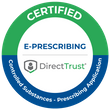LIMS ( Laboratory Information Management System ) For Labs
Laboratory Information Management System, is an important tool used in healthcare labs to manage and automate laboratory processes. It plays a key role in improving efficiency, accuracy, and overall quality of lab operations.
A LIMS for labs in healthcare typically offers a range of features and functionalities that cater to the specific needs of medical laboratories. Here are some key aspects of a LIMS in healthcare settings :

Sample and data management :
A LIMS allows labs to effectively track and manage samples throughout their lifecycle, from collection to disposal. This includes sample accessioning, labeling, storage, and retrieval. It also enables efficient data management, ensuring accurate tracking of patient information, test results, and associated metadata.

Quality control and compliance :
A LIMS ensures compliance with regulatory requirements and industry standards. It supports quality control measures by enforcing standardized testing protocols, managing reagents and supplies, tracking instrument calibration, and facilitating data auditing.

Integration with instruments and systems :
LIMS can integrate with various laboratory instruments, allowing seamless data transfer and eliminating the need for manual entry. This integration helps increase efficiency, reduces transcription errors, and ensures reliable and accurate test results.

Workflow automation :
LIMS helps streamline lab processes by automating routine tasks such as sample processing, scheduling, and result reporting. It reduces manual errors, enhances productivity, and facilitates faster turnaround times for test results.

Reporting and analytics :
LIMS provides comprehensive reporting capabilities, enabling labs to generate customized reports for different stakeholders including healthcare professionals, administrators, and regulatory bodies. It also offers data analysis and visualization tools to derive insights from the vast amount of laboratory data.

Collaboration and communication :
LIMS facilitates effective collaboration within the lab and with other departments or external stakeholders. It allows sharing of relevant information, test requests, and results securely, promoting interdisciplinary communication and improving patient care coordination.

Here are some key advantages of implementing a LIMS
- Quality control and compliance : LIMS supports adherence to regulatory requirements and quality control standards.
- User management and access control : LIMS allows labs to define user roles and permissions, ensuring appropriate access to data and functionalities
- Interoperability and data exchange : LIMS supports interoperability by enabling the exchange of data with other healthcare systems such as electronic health records (EHRs) or hospital information systems (HIS).
- Audit trails and data traceability : LIMS maintains detailed audit trails, providing a record of all activities performed within the system.
- Patient and test result management : LIMS facilitates efficient management of patient information, test orders, and test results.
LIMS designed specifically for healthcare labs helps optimize lab operations, enhance data accuracy, ensure regulatory compliance, and improve patient care. Its implementation can lead to increased efficiency, reduced turnaround times, and better overall management of laboratory processes in the healthcare setting.
